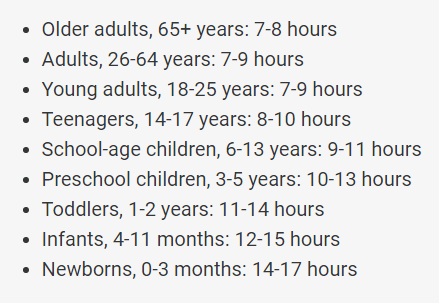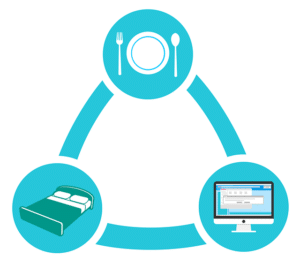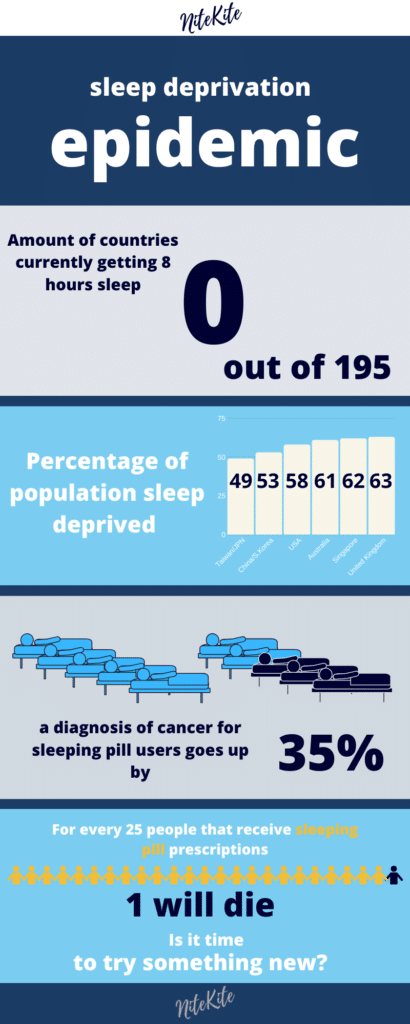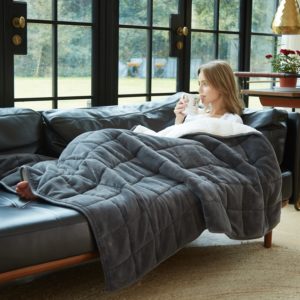They say demand equals supply. According to the laws of economics that’s how everything works in life.
Except for one particular thing: Sleep
How much sleep do I actually need?
The amount that will decrease your chances of developing one of the following: Low sex drive, high blood pressure, stroke, diabetes et al.

If you get 7-9 hours 7 days a week, you win, close the page! If not, keep reading.
Do you find yourself calculating what part of the day you’re going to take a 15 minute nap so you can relentlessly complete the other 5 chores you planned to do yesterday?
Is being told not to drink coffee past midday becoming a morning affirmation broken by 4pm?
This is life. And it’s killing us, it’s killing YOU.
Scared yet?
Maybe not. Well let’s look at the short term issues that arise from low quality or a total lack of sleep:
Lack of alertness: Even missing as little as 1.5 hours can have an impact, research shows.
Impaired memory: Lack of sleep can affect your ability to think and to remember and process information.
Relationship stress: It can make you feel moody, and you can become more likely to have conflicts with others.
Quality of life: You may become less likely to participate in normal daily activities or to exercise.
Greater likelihood for car accidents: Drowsy driving accounts for thousands of crashes, injuries and fatalities each year, according to the National Highway Traffic Safety Administration.
Courtesy: https://health.clevelandclinic.org
The Problem

Not sleeping has become a highlight of our week, have you ever gone in to work on a Monday and heard someone not talk about how much sleep they got? That’s right, you haven’t, and neither have I.
In fact, if someone tells you they slept a lot, it’s normally some type of catch up sleep or something that was owed to them from the imaginary sleep thief (ubiquitously titled “my job”)
This is what the cycle looks like:
Read about how to get more sleep > go to sleep the same time every night, wake up same time every morning > Break this new system every Friday night, and attempt it again the next Monday.

How To Get Higher Quality Sleep
The truth is, the demands of today’s society require us to go above and beyond, or fall behind, whether it be work, social life, side-hustling to make ends meet – it really isn’t as simple as asking people to sleep more. And in all honesty, do we really want that? Having a breakout area strategically placed no more than 30 seconds away from every desk, in which time you can make a quick espresso, side by side with the “go to sleep early” message broadcast on every billboard from here to Hong Kong creates a certain conflict of ideals.
The real answer is to find a way to get high quality rest in a shorter period of time.
There are actually various ways to do that, many which are over looked more often than not.
Did you know that only 1/3 of the population actually wash their duvets twice a year? More on that later.
When we think about sleep, we think about the part for which we are largely unconscious, drifted into another world to be forgotten once that alarm goes off. True, this is the fundamental part of the sleep process, not being awake. But we can achieve quality sleep by paying attention to the setup of the environment in which we sleep.
How To lower The Barriers To Quality Sleep
Change Your Sheets (More Frequently)
Quality sleep can be achieved consistently when the requirements to reach it do not need us to have any input in the process i.e. trying to sleep at the same time each day, and then watching Netflix for an extra 30 minutes or scrolling the Instagram feed for another hour.
How often do we hear about our skin shedding while we sleep? Of course we don’t visualise the process which is essentially the same as a snake shedding its hide – as we should, because this would create all kinds of trauma.
But if you saw that on your bed, we can be pretty certain you’d change your sheets every night!
We all (hopefully) wash our sheet and duvet covers once every week or 2…or 3, but rarely do we wash our duvets – their thick and clunky and besides, we don’t actually sleep directly on them right? Well no, dust mites collect on the duvet like they do on all our fabrics and rolling around in that same duvet for years on end decreases the quality of our sleep more than you would care to read.
Try An Air Purifier – The Sense Behind The Scents
Live in the city? Live anywhere near a city? Does your city have a “driving problem” – do most people drive where they can walk?
A 2017 study suggests too much exposure to air pollution and city noise may cause damage to a person’s cardiovascular health AND mental health. And if it wasn’t obvious already, cardiovascular disease and poor mental health lead to low quality sleep cycles.
Let’s state another obvious flaw with the system here: we cannot control the air quality outside, individually. Luckily this changes once we enter our own homes. A simple air purifier will add another element to your room which you will require no input from you after the initial setup.
The air purifier solves multiple problems at once. Firstly you are essentially asleep for 1/3 of your life, all differences aside, if you can make it so that you get quality air passing through your body for that period without any extra work, you have increased your air quality by at least 33% in comparison to anyone who has not.
Weighted Blanket
Noticed the rise in this trend recently? There’s a method to the madness.
Low quality sleep can arise due to a number of reasons, poor environment, low total hours, bad quality fabrics the list goes on. As previously stated poor mental state of mind can have a big effect. If you’ve been following the wave of celebrities coming out to weigh in on the current importance of mental health, you may have seen a few stories on weighted blankets.
Short form: They work by providing a healing practice known as Deep Pressure Therapy – effectively the sensation of a “warm, heavy hug” to the body for hours at a time.
Ever heard the saying: “Talking to yourself is the first sign of madness”. One of the things we find ourselves doing before bed is over-analysing and over-planning, winding ourselves up and reducing the chance of peaceful sleep. So how does a weighted blanket affect this?
Many users say they experience less anxiety and more quality hours of sleep when using a weighted blanket, and strong evidence exists to support this due to the fact that weighted blankets, vest and other products have been observed to help children on the spectrum get better quality sleep.
Final Thoughts
We all have to work, so often times sleep is the first thing that gets cut when we need more time for other things. But research is continuously showing that this is health and ultimately life-threatening.
Do you feel you are showing your sleep its proper respect?





